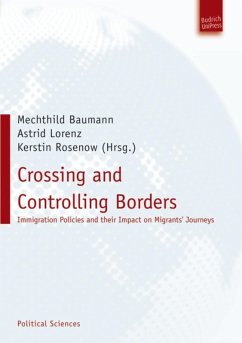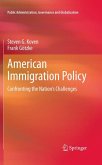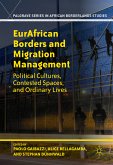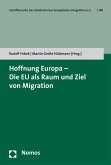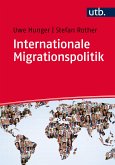This volume highlights the impact of border controls on migrants' journeys in two major areas of immigration: the European Union and the United States of America. In order to show the linkages between border control policies and migratory practices, the book combines empirical insights from ethnography with approaches from political science. Describing migrants' realities reveals that the impact of border control policies goes beyond the actual border area affecting many lives and states.
Dieser Download kann aus rechtlichen Gründen nur mit Rechnungsadresse in A, B, BG, CY, CZ, D, DK, EW, E, FIN, F, GR, H, IRL, I, LT, L, LR, M, NL, PL, P, R, S, SLO, SK ausgeliefert werden.

